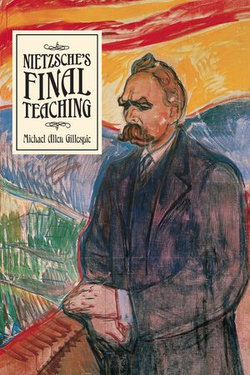A provocative reassessment of Nietzsche's later writings that explores the political and philosophical significance of the concept of eternal recurrence.
In the years before his collapse into madness, Nietzsche completed his masterful Thus Spoke Zarathustra, as well as six additional works that developed a new, more systematic teaching rooted in the idea of the eternal recurrence. Cutting against the grain of current Nietzsche scholarship, Michael Allen Gillespie presents this later thought as Nietzsche himself intended, drawing not only on his published works, but also on notes and correspondence discussing works he was unable to complete.
Gillespie argues that the idea of the eternal recurrence transformed Nietzsche's thinking and provided the grounding for the new logic, ontology, theology, and anthropology he intended to create with the aim of a "revaluation of all values." Nietzsche believed that the final culmination of this thought would enable the redemption of humanity. At the same time, he recognized its terrifying, apocalyptic consequences, since it would also produce wars of unprecedented ferocity and destruction.
Through his careful analysis, Gillespie reveals a more radical and more dangerous Nietzsche than the humanistic or democratic Nietzsche we commonly think of today—but also a thinker deeply at odds with the one many imagined as the forefather of Fascism. Gillespie's essays examine Nietzsche's final teaching and provides an in-depth critical examination of its meaning for us today.



Share This eBook: